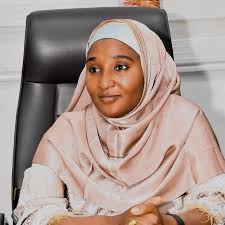*As FG’s Unveils Revised Primary, Secondary, Technical Schools’ Curricula
FOLLOWING the Federal Government’s comprehensive review of school curricula for basic, senior secondary and technical education, aimed to make Nigerian learners “future-ready,” newly introduced secondary school curriculum will, for the first time, include modules on Journalism, Computer Programming, Artificial Intelligence (AI), Robotics and Fact-checking.
Recall that th Federal Ministry of Education had in a statement on Friday, August 29, by its Director of Press and Public Relations, Boriowo Folasade, made available to journalists on Sunday, August 31, said the Minister of State for Education, Prof. Suwaiba Ahmad, announced the curriculum on behalf of the Minister of Education, Dr. Maruf Alausa, while speaking in Abuja.
According to the minister, the review was carried out in collaboration with key education stakeholders, including the Nigerian Educational Research and Development Council, Universal Basic Education Commission, National Senior Secondary Education Commission and National Board for Technical Education.
The new framework is designed to reduce content overload, improve learning outcomes and ensure Nigerian students are equipped with skills relevant to today’s global demands.
Ahmad said the exercise went beyond merely trimming subjects, saying it focused on improving content to promote deeper learning and reduce overload for pupils and students.
Under the revised structure, pupils in Primary One to Three will study a minimum of nine and a maximum of 10 subjects; pupils in Primary Four to Six will take 10 to 12 subjects; junior secondary students may offer 12 to 14 subjects; senior secondary students eight to nine subjects and technical schools nine to 11 subjects.
Ahmad stated that the revised curricula will reduce content overload and create more learning time for students, adding that the changes reflect government’s commitment to delivering quality, practical and relevant education in a rapidly changing world.
The ministry commended stakeholders for their role in the review, saying implementation will be accompanied by strict monitoring to ensure a smooth transition across schools nationwide.
It did not give an exact date for rollout, but said the new curricula will be phased in with oversight from relevant agencies to guarantee effective adoption.
Recall that Alausa had disclosed the postponement of the implementation of the revised basic education curriculum until September this year, following the announcement by his predecessor, Prof. Tahir Mamman, that the new curriculum for basic education would commence across schools in January this year.
Mamman had stated that under the new curriculum for basic schools, pupils will be required to acquire at least two skills.
However, according to excerpts from the yet-to-be-released curriculum document shared on Tuesday, September 2, by Senior Special Adviser to President Bola Tinubu on Social Media, Dada Olusegun, Journalism will now form part of the English Language module at the senior secondary school level, while Programming will cut across both junior and senior classes.
Similarly, AI and Robotics have been included as components of the newly created subject, Digital Literacy, in senior secondary schools.
The reforms are designed to equip Nigerian students with skills relevant to a technology-driven world and to strengthen their capacity for critical thinking, creativity and innovation.
According to the subject breakdown, junior secondary school (JSS 1–3) will study Mathematics and Measurement: Numbers, fractions, percentages, geometry, algebra and statistics.
English Language: Advanced grammar, comprehension, essay writing, debates, speeches and drama.
Integrated Science: Physics, chemistry, biology, ecology, earth sciences, technology.
Digital Literacy and Coding: Word, Excel, PowerPoint, Internet research, Python basics, Scratch, robotics kits.
Social Studies: Nigerian and African history, geography, civics, entrepreneurship and global issues.
Languages: Mother tongue (advanced) and foreign language fluency (French/Arabic).
Creative Arts: Drawing, painting, crafts, theatre, film basics and music.
Physical and Health Education: Sports, nutrition, reproductive health, first aid and drug abuse awareness.
As for senior secondary school (SS 1–3), Mathematics and Advanced Applications: Algebra, trigonometry, calculus basics, probability and financial maths.
English and Communication: Academic writing, literary analysis, research skills, journalism, fact-checking and public speaking.
Sciences: Advanced physics, chemistry, biology, biotechnology and environmental science.
Technology and Innovation: Programming (Python, JavaScript, HTML/CSS), AI and robotics, cybersecurity, data science and digital entrepreneurship.
Social Sciences: Government, law, economics, philosophy, ethics, African and world history.
Languages: Literature in mother tongue, fluency in French/Arabic/Chinese.
Creative Arts and Innovation: Music, fine arts, drama, film/media production.
Physical and Health Education: Advanced sports, mental health, CPR and leadership training.
Research and Project Work: Final-year project with data collection, analysis and defence.
Education experts have described the curriculum overhaul as a step toward preparing Nigerian students for global competitiveness in the knowledge economy.



